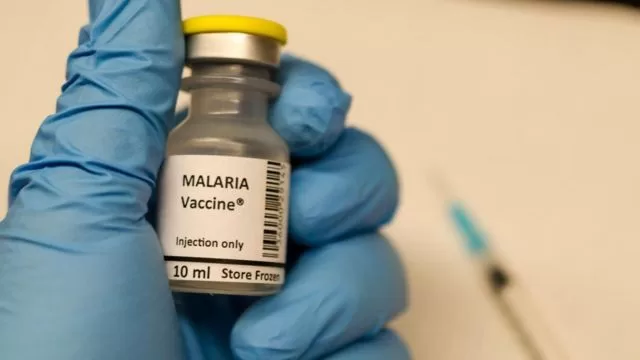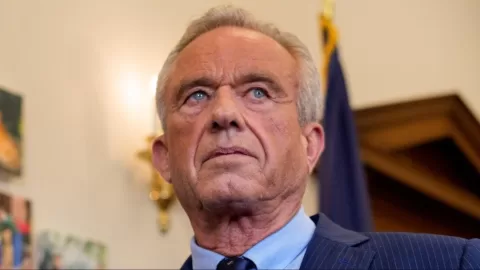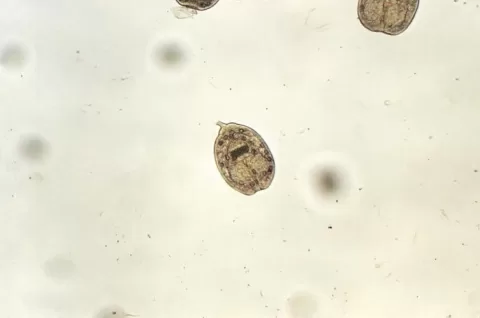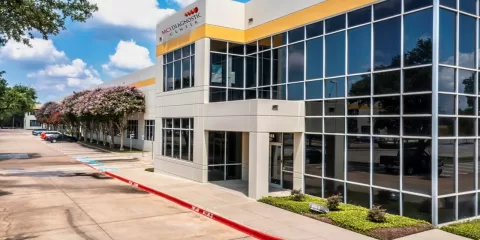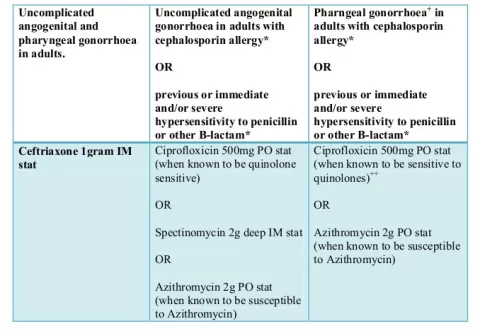The launch of the R21 malaria vaccine marks a significant milestone in the fight against malaria, especially in Ivory Coast, which became the first country to administer this groundbreaking immunization. Co-developed by Oxford University and the Serum Institute of India, this vaccine’s entry into the market follows the prequalification by the World Health Organization (WHO) in December 2023. The R21 vaccine rollout aims to address the urgent need for effective malaria prevention, particularly in regions deeply affected by the disease. With the inclusion of the Matrix M adjuvant, which enhances immune response, the R21 malaria vaccine is expected to change the landscape of malaria treatment in Africa. Priced at under $4 a dose, it promises to be an accessible solution for health authorities striving to protect their populations from malaria, thus paving the way for a healthier future.
Ivory Coast has recently taken a decisive step in combating malaria with the introduction of the new R21 vaccine, a product of collaboration between leading research institutions and manufacturing pioneers. This innovative malaria immunization presents an advanced option for malaria prevention, particularly benefiting communities affected by this tropical disease. The R21 vaccine symbolizes hope, especially as it has gained WHO prequalification, assuring its safety and efficacy for widespread use. The involvement of the Serum Institute of India further enhances the vaccine’s availability, enabling it to be distributed at a cost-effective rate, which is crucial for resource-limited settings. As similar initiatives emerge across the continent, the anticipation builds for a broader rollout that promises to safeguard vulnerable populations from the perils of malaria.
Overview of the R21 Malaria Vaccine Launch in Ivory Coast
Yesterday marked a significant milestone in the fight against malaria as Ivory Coast became the first nation to roll out the R21 malaria vaccine, co-developed by the esteemed Oxford University and the Serum Institute of India (SII). This innovative vaccine, which incorporates the Matrix M adjuvant to enhance immune responses, was prequalified by the World Health Organization (WHO) in December 2023. This prequalification is crucial, as it guarantees adherence to rigorous safety and efficacy standards, facilitating greater access to this life-saving vaccine in lower- and middle-income countries.
With the rollout of R21, the Ivory Coast aims to combat the persistent threat of malaria, which continues to claim lives—primarily among young children. The first vaccination was administered in Abidjan, the capital, signaling the start of a comprehensive program designed to distribute R21 across 38 districts in the country. The vaccine is priced at under $4 per dose, a crucial factor for ensuring widespread accessibility and uptake, especially in regions where healthcare resources are limited.
The Significance of WHO Prequalification for Malaria Vaccines
The prequalification of the R21 malaria vaccine by the World Health Organization (WHO) is a pivotal development that underscores the global commitment to eradicate malaria. WHO prequalification serves as a credible assurance that the vaccine meets international standards for quality, safety, and efficacy. This process not only facilitates smoother regulatory approval pathways but also unlocks significant funding and support from international organizations, allowing lower- and middle-income countries to access vital health resources.
The implications of this prequalification extend beyond just the R21 vaccine. Countries like Ivory Coast can now expect continuous support and resources to implement vaccination programs effectively. Through partnerships with organizations such as Gavi, the Vaccine Alliance, the introduction of R21 is just the beginning. The aim is to vaccinate millions of children and substantially reduce malaria-related deaths across Africa, showing the power of collaborative efforts in global health.
The Role of Serum Institute of India in Vaccine Production
The Serum Institute of India (SII), recognized as the world’s largest vaccine manufacturer by volume, plays a crucial role in the production and distribution of the R21 malaria vaccine. With a commitment to addressing urgent public health needs, SII has already manufactured an impressive 25 million doses of the R21 vaccine, with plans to scale production to 100 million doses annually. This capability not only supports India’s public health initiatives but also caters to the needs of malaria-affected countries in Africa.
SII’s pricing strategy is also noteworthy, as they have committed to supplying the R21 vaccine for less than $4 per dose. This pricing makes the vaccine financially accessible to many countries in Africa, including Ivory Coast, which have been grappling with rising malaria cases. Such initiatives from the Serum Institute demonstrate a powerful model for public-private partnerships in addressing global health crises, ensuring that innovative solutions like R21 can reach those who need it most.
Innovative Technology Behind the R21 Malaria Vaccine
The R21 malaria vaccine is a remarkable product of cutting-edge biopharmaceutical research and development, utilizing an adjuvant system known as Matrix M. Developed by Novavax, this immune booster is designed to enhance the body’s immune response to the malaria parasite, thus increasing the vaccine’s overall effectiveness. Such technological advancements signify a leap forward in vaccine development, providing hope for controlling and eliminating malaria in high-risk populations.
Moreover, the scientific collaboration between institutions like Oxford University and industry leaders such as SII underscores the importance of innovation in combating endemic diseases. By leveraging novel adjuvant technologies, R21 sets a new benchmark for malaria vaccines, paving the way for future research and the potential development of more advanced vaccines that can tackle emerging malaria threats.
Expected Impact of R21 Vaccine Rollout in Africa
As the R21 malaria vaccine is introduced across Ivory Coast, its impact is expected to be profound, particularly among vulnerable populations like children. Health officials estimate that the initial batch of 656,600 doses will enable the vaccination of approximately 250,000 children across 16 regions in the country. By significantly reducing malaria cases and mortality rates, the R21 vaccine could serve as a model for other African nations looking to implement similar health initiatives.
Furthermore, the planned vaccine rollout is expected to set precedence for fifteen additional African countries anticipated to introduce malaria vaccines in 2024. With the backing of Gavi, the Vaccine Alliance, these countries aim to reach 6.6 million children by 2025. The successful deployment of R21 marks a critical step to not only curb malaria’s impact but also to encourage a collaborative public health approach across the continent.
Challenges in Malaria Vaccine Implementation in African Countries
Despite the promising rollout of the R21 malaria vaccine, challenges remain in the implementation and distribution of malaria vaccines across Africa. Issues such as logistical hurdles, infrastructure deficits, and vaccine hesitancy can impede progress. Countries must ensure they have the necessary cold chain systems in place to store and transport the vaccine effectively, as any lapse in vaccine integrity can undermine public trust and health outcomes.
Additionally, engaging local communities to combat misinformation and vaccine hesitancy is crucial for the success of malaria vaccination campaigns. Educational initiatives can help demystify the vaccination process and encourage parents to vaccinate their children against malaria. Collaborative efforts between governments, health organizations, and community leaders are essential to overcome these challenges and maximize the potential benefits of the R21 vaccine.
Future Perspectives on Malaria Vaccines
The arrival of the R21 malaria vaccine signifies a hopeful advancement in the ongoing battle against malaria, a disease that continues to affect millions worldwide. As research and development continue, vaccines like R21 represent a fundamental shift towards more effective strategies in malaria prevention and control. Future perspectives suggest that sustained funding and support for vaccine development will also spur innovations that could yield even more robust vaccines.
Additionally, as countries like Ivory Coast initiate vaccination programs, data and feedback from these experiences can inform future vaccine research and deployment strategies. The introduction of R21 could catalyze broader international collaboration, as the world unites behind the goal of eradicating malaria by 2030. Such aspirations affirm the urgent need for continued investments in vaccine development and public health infrastructure.
Role of the Global Community in Supporting Malaria Vaccination Efforts
The fight against malaria requires a concerted effort from the global community, including governments, health organizations, and private sector stakeholders. The successful rollout of the R21 malaria vaccine in Ivory Coast is a prime example of how international collaboration can yield impactful health solutions. Financing through entities like Gavi, the Vaccine Alliance, demonstrates the vital role of global partnerships in ensuring that vaccines reach those who need them most, especially in low-resource settings.
Continued advocacy and support from the global community are needed to sustain momentum in combating malaria. By fostering investments in healthcare systems and vaccine technologies, as well as supporting programs that educate communities about the importance of vaccination, the international community can help diminish the burden of malaria and improve health outcomes for millions.
The Path Forward for Malaria Eradication in Africa
As the R21 malaria vaccine gains traction across Ivory Coast and beyond, the path forward for malaria eradication in Africa appears to be within reach. The close collaboration between various stakeholders, including governments, health organizations, and vaccine manufacturers, will be essential to ensure the successful implementation and sustainability of vaccination programs. Monitoring and evaluation of the vaccine’s impact will provide critical insights into its effectiveness and inform future strategies.
Looking ahead, the need for comprehensive strategies that include vector control, community education, and ongoing research into new vaccines will be crucial. The commitment to malaria eradication across Africa can be bolstered by the introduction of innovative vaccines like R21, along with the support of international organizations and investments in healthcare infrastructure. Together, these efforts can bring about substantial changes in malaria mortality rates and improve the overall health of communities in endemic regions.
Frequently Asked Questions
What is the R21 malaria vaccine and how was it developed?
The R21 malaria vaccine is a newly launched malaria vaccine co-developed by Oxford University and the Serum Institute of India (SII). It features the Matrix M adjuvant, an immune booster created by Novavax. This vaccine is designed to provide protection against malaria and is significant as the second malaria vaccine available in the market after RTS,S.
When was the R21 malaria vaccine prequalified by the WHO?
The R21 malaria vaccine was prequalified by the World Health Organization (WHO) in December 2023. This prequalification ensures that the vaccine meets international standards for quality and safety, facilitating its distribution, especially in lower- and middle-income countries.
Where was the first dose of the R21 malaria vaccine administered?
The first dose of the R21 malaria vaccine was administered in Abidjan, the largest city in Ivory Coast, marking the beginning of its rollout in the country.
How many doses of the R21 malaria vaccine are available for Ivory Coast?
Ivory Coast has received 656,600 doses of the R21 malaria vaccine. These doses are intended to initially vaccinate 250,000 children across 16 regions of the country.
What is the expected price of the R21 malaria vaccine?
The R21 malaria vaccine is priced at under $4 per dose, making it an affordable option for vaccination programs in countries like Ivory Coast.
How many doses of the R21 malaria vaccine does SII intend to produce annually?
The Serum Institute of India (SII) initially produced 25 million doses of the R21 malaria vaccine and plans to ramp up production to 100 million doses annually to meet growing demand.
How does the R21 malaria vaccine compare to RTS,S?
The R21 malaria vaccine is the second malaria vaccine introduced to the market after RTS,S. While both vaccines aim to combat malaria, the R21 vaccine incorporates the Matrix M adjuvant, which enhances immune responses, potentially offering improved efficacy.
What impact do malaria vaccines like R21 have on child mortality rates in Ivory Coast?
With malaria continuing to claim about four lives each day in Ivory Coast, primarily among young children, the introduction of the R21 malaria vaccine is a critical step towards reducing child mortality rates due to malaria, complementing existing health initiatives in the country.
Which other countries are expected to introduce the R21 malaria vaccine?
Following its rollout in Ivory Coast, 15 other African countries are expected to introduce malaria vaccines, including the R21 malaria vaccine, in 2024, with support from Gavi, the Vaccine Alliance, reaching an estimated 6.6 million children.
What is the role of Gavi in the rollout of the R21 malaria vaccine?
Gavi, the Vaccine Alliance, plays a crucial role in supporting the rollout of malaria vaccines, including R21, by providing funding and resources to help reach millions of children in lower-income countries, ensuring wider access to essential vaccines.
| Aspect | Details |
|---|---|
| Launch Date | Ivory Coast became the first country to launch the R21 malaria vaccine. |
| Developers | Co-developed by Oxford University and the Serum Institute of India (SII). |
| Adjuvant | Includes the Matrix M adjuvant, produced by Novavax, to boost immune response. |
| Market Position | R21 is the second malaria vaccine approved after RTS,S. |
| WHO Prequalification | Prequalified by WHO in December 2023, ensuring safety and quality. |
| First Administration | First dose administered in Abidjan, Ivory Coast’s largest city. |
| Distribution | Vaccine will be distributed across 38 districts in Ivory Coast. |
| Price | Priced at under $4 per dose. |
| Current Malaria Impact | Malaria continues to claim about four lives daily in Ivory Coast, primarily among children. |
| Production Plans | SII has produced 25 million doses and plans to increase to 100 million doses annually. |
| Initial Supply | Ivory Coast received 656,600 doses for vaccinating 250,000 children. |
| Future Rollout | Fifteen African countries expected to introduce the vaccine in 2024 with Gavi’s support. |
Summary
The R21 malaria vaccine represents a significant advancement in malaria prevention, becoming the first of its kind to be launched in Ivory Coast. Developed by Oxford University and the Serum Institute of India, this vaccine is designed to combat the ongoing malaria crisis, which still claims lives daily, particularly among vulnerable populations such as children. With its affordable price point and ambitious distribution plans, the R21 malaria vaccine aims to significantly reduce malaria-related fatalities across Africa.
The content provided on this blog (e.g., symptom descriptions, health tips, or general advice) is for informational purposes only and is not a substitute for professional medical advice, diagnosis, or treatment. Always seek the guidance of your physician or other qualified healthcare provider with any questions you may have regarding a medical condition. Never disregard professional medical advice or delay seeking it because of something you have read on this website. If you believe you may have a medical emergency, call your doctor or emergency services immediately. Reliance on any information provided by this blog is solely at your own risk.



